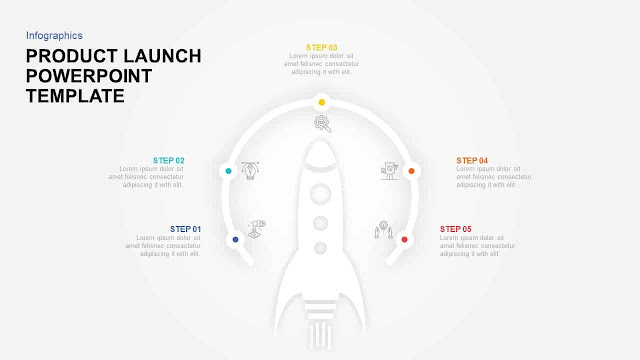Be Yourself When You are in Presentation Deck
Presenters often disguised when they are addressing a seminar or a workshop. If you make a business presentation, speak to groups, or provide training, don’t try to imitate great speakers because metamorphose often losses your identity and credibility. There are few things in the business world that buildup stress than delivering a presentation. Presentation talents are significant to both individual success and business success. Presenting material naturally and effectively is a key skill to get your message or opinion across and, today, presentation skills are essential in almost every field.
When you imitating a person, people are doubtful about your skills and abilities so when you are in a serious presentation, they show some withdrawal signs such as playing with hands, speaking with the next person, or yawning. There is a lot of studies have been conducted to improve business presentation skills. You may have knowledge about these guidelines, however, feel some difficulties apply to own career. Here, I came with easy to copy presentation tips will help you develop your presentation skills.
Even if you don’t need to make regular presentations in front of an audience, there is an abundance of situations where good presentation and public speaking skills can help you advance your career and create opportunities. May people feel tension when asked to make their first public speech, most of the time they are trying to imitate other speakers, already heard in some other contexts. Adopt their own styles and tones, even their topics and stories as well. Obviously, this may be the technique to get rid of initial fears. After these initial fears reduced, a good presenter should develop his/her speaking strategies by good preparation which will also lay the groundwork for making an effective presentation. Here are 6 ways to improve your presentation surprising and enjoy the opportunity to bask in the limelight.
1. Presentation needs preparation
Grounding is the single most vital part of making a successful presentation. It is an absolutely crucial foundation, and you should dedicate as much time to it as possible, avoiding short-cuts. Good preparation will ensure that you have thought carefully about the content that you want to share in your presentation and it will also help boost your confidence. Make a careful study about your subject, and examine every nook are corner. Because when you are in the interaction session, there will be a lot of questions, unless you have better knowledge about the subject, it will be difficult to clear their doubts. So, be a chess player; anticipate the expected moves of the audiences by making a thorough study of the topic. Prepare factual data that will supplement your speech. Make a sketch, and once you’ve prepared your presentation, don’t be afraid to revise. To develop your abilities and increase the confidence you must practice, prepare and learn from each presentation.
Rehearse what you are going to talk out loud a minimum of three times. This will ensure your flow and help avoid any “ahs” “ums” or other filler words.
2. Focus on the theme
No one impressed by a presentation that wandering to several other worlds. Rambling happens when the speaker is unorganized and self-indulgent. Your aim and content must be specifically directed to the interests of your listeners or they will mentally shut you down. Your content must be factual, accurate, and well-organized before you start adding any kind of bells and whistles along with it.
3. Add energy with your presentation
If you are not involved in your subject then no-one else stands a chance. You must bring some enthusiasm to your talk. Energy and enthusiasm is an essential element in any successful speaker’s delivery. The ability to feel and express interest is immensely empowering. If you are not passionate about your subject, then you will have trouble communicating your points to the audience. Love your subject; by this, you can inject enthusiasm to your speech. Believe in what you are saying because most audiences can detect a fake almost instantly. Show your enthusiasm in your actions. Body movements, smile, let the excitement shine through in your voice and keep eye contact with people in the audience. Do the whole thing you can to transform your presentation from ordinary to extraordinary.
Before stepping on the deck, ask yourself: how do I move? How do I stand? How do I sound? Imagine your movements on the platform, and then make it a reality.
4. Use visual aids only to enhance
PowerPoint designs, visuals, and videos are powerful presentation tools when used properly. But they can be disastrous distractions when misused. Hang onto your PowerPoint to a few words and never read from the screen in the presentation. Pick only simple business PowerPoint templates that fill the points in a self-explanatory fashion. Visual aids are an essential part of presentations. They can help to keep your audience engaged, make your point for you- there is a reason why people say that a picture tells a thousand words. However, poor use can kill your content. Ask yourself if a PowerPoint slide or video is truly necessary before adding anything.
5. Condense presentation to grab attention
Prepare your presentation only after the need assessment. Every audience wonders what’s in it for them, to begin a presentation with a reason to listen. Humbly clarify why your presentation is worth listening to. Summarize your topics and share within during the first spell of the presentation. Then only, audiences know how important lessons you are going to teach.
6. Be yourself
Be a brand, by neglecting other’s gestures and concepts. When people listen to a presentation, what engages them, influences them and motivates them to take action are rarely just the facts or statistics or even the logic and stories. The other factor is the person delivering the presentations. Their knowledge, credibility, the trust they generate, and the connection they make with their audience. It is absolutely important to remember, the more you try to act like someone, and more you lost your credibility and identity. The more you act like yourself, the more confidence you’ll seem, and the more the audience will be able to connect to you.




Comments
Post a Comment